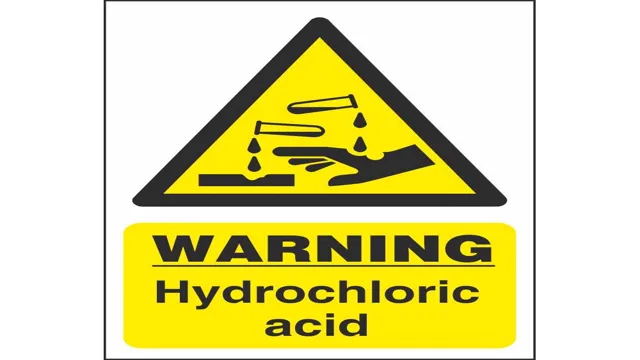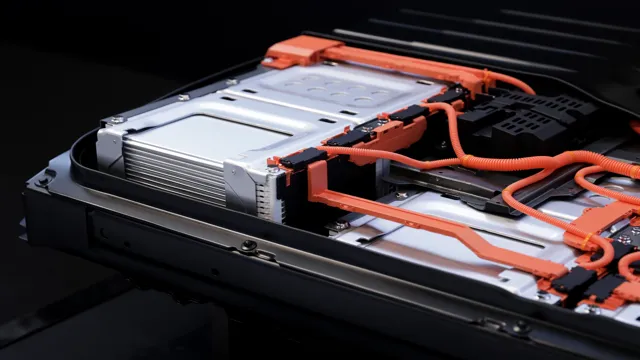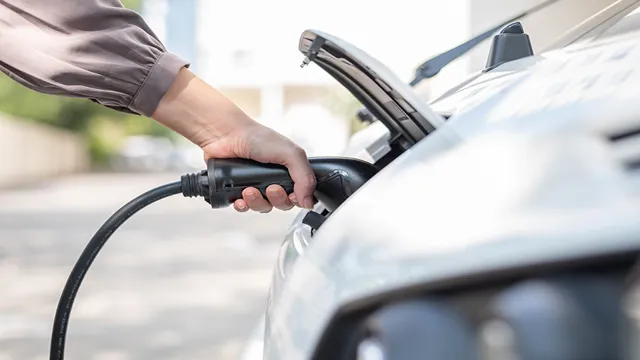Shocking Truth Behind Electric Car Battery Hazards: Are You Really Safe?
Electric cars are becoming a popular choice for many people who are concerned about the environment and want to save money on fuel. However, with the rise in electric cars, there is an increasing need for people to be aware of the potential hazards associated with their batteries. Electric vehicle batteries store a large amount of energy, which can be dangerous if not handled properly.
In this blog post, we will discuss the hazards of electric car batteries and provide tips on how to stay safe when using them. It’s important to understand the potential dangers of electric car battery and how to mitigate them, so you can enjoy your electric car safely.
Introduction
Electric car battery hazards are a valid concern for anyone considering purchasing an electric vehicle. Lithium-ion battery technology is what powers most electric cars and it can be a cause for concern due to its potential hazards. While these batteries are very safe during normal driving, they can be dangerous if they are damaged or improperly handled.
The biggest risk is a thermal runaway, which can cause the battery to catch fire or even explode. To avoid this risk, it is important to properly maintain your electric car and to follow the manufacturer’s guidelines for charging and handling the battery. It is also important to be aware of what to do in case of an emergency.
Though the risks of lithium-ion battery technology are real, they can be managed with proper care and attention.
Understanding Lithium-Ion Batteries
Lithium-ion batteries are everywhere in modern life, from smartphones to electric vehicles. These batteries work by storing and releasing energy through a chemical reaction involving lithium ions moving between two electrodes. Unlike traditional batteries, which use heavy and bulky materials like lead and acid, lithium-ion batteries are lightweight and compact, making them the ideal choice for portable electronics and transportation.
One of the major advantages of lithium-ion batteries is their high energy density, which means they can hold a lot of energy in a small space. However, as with any technology, there are also some downsides to lithium-ion batteries, such as the risk of overheating and fire. Understanding the science behind lithium-ion batteries is crucial for maximizing their benefits while minimizing their risks.

Potential Hazards of Lithium-Ion Batteries
Lithium-Ion Batteries Lithium-ion batteries are prevalent in our daily lives, and it’s difficult to imagine a world without them. However, despite their numerous advantages, we should not overlook their potential dangers. One of the critical hazards of lithium-ion batteries is their propensity to overheat and catch fire.
This is often due to the formation of dendrites or metallic protrusions that grow inside the battery over time, increasing the likelihood of a short-circuit. Furthermore, the liquid electrolyte inside the battery can ignite if it leaks, thus increasing the risk of an explosion. Therefore, it is essential to handle lithium-ion batteries with care, charge them as instructed, and avoid exposing them to high temperatures or mechanical damage.
These measures can ensure that we continue to benefit from the many conveniences of lithium-ion batteries while minimizing their potential dangers.
Safety Tips
Electric car battery hazards are a serious concern for those driving and maintaining electric vehicles. One of the most common hazards is the risk of electrical shock when handling the battery. It is important to remember that electric car batteries contain high voltage electrical charge and should only be handled by trained professionals.
In addition to electrical shock, there is also the risk of fire or explosion from damaged or improperly installed batteries. It is important to follow the manufacturer’s guidelines for maintenance and storage of the battery. In the event of an accident, first responders should also be made aware that the vehicle is electric to ensure safety protocol is followed.
By being aware of the potential hazards and taking proper precautions, electric vehicle owners can enjoy the benefits of a cleaner, more sustainable mode of transportation while also ensuring their safety and the safety of others.
Safe Charging Practices
Safe Charging Practices When it comes to charging your electronic devices, safety should always be a priority. A few simple precautions can help prevent potential hazards and ensure that your devices are charged effectively and efficiently. First and foremost, it’s essential to use the correct charger for your device.
Using a different charger can cause damage or even a fire hazard. Avoid charging your devices overnight or leaving them charging for extended periods to prevent overheating and potential battery damage. Always keep your charger and cord in good condition, free of fraying or damaged insulation.
Finally, avoid charging your devices in direct sunlight or near heat sources, which can also cause overheating. By following these simple safety tips, you can ensure that you have a fully charged device without putting yourself or your property at risk.
What To Do if There’s a Battery Fire
Battery fires can be frightening, and if you ever find yourself in a situation where a battery is on fire, it’s important to remember a few key safety tips. First and foremost, move away from the fire as quickly as possible to avoid exposure to any toxic fumes. Once you are at a safe distance, call emergency services to report the fire.
Attempting to extinguish the fire yourself can be dangerous, so it is best to leave it to the professionals. If the battery is in a device, it is vital to disconnect it from any power source and remove it from the area. Do not attempt to touch the battery or move it as it may still be hot and could cause further injury.
By following these safety tips, you can minimize the risk of injury, damage to property, and prevent the fire from spreading further. Remember, safety always comes first, so if in doubt, seek professional help.
How to Transport Lithium-Ion Batteries Safely
Transporting lithium-ion batteries can be a challenging task, mainly due to safety concerns. These batteries have a high energy density, making them combustible and potentially dangerous when not handled with care. To transport lithium-ion batteries safely, there are a few tips to follow.
Firstly, it’s crucial to ensure that the battery is securely packed in a strong, rigid container that meets the UN guidelines for lithium-ion batteries. The container should be marked with the appropriate safety labels and handled with care at all times. Additionally, it’s essential to avoid exposing the battery to extreme temperatures, which can cause it to overheat and, in some cases, explode.
Finally, it’s vital to check with the transportation provider regarding any regulation or restriction when transporting lithium-ion batteries by air, road, or sea. Overall, following these safety tips can ensure the safe transportation of lithium-ion batteries, minimizing the risk of accidents.
Misconceptions About Electric Car Batteries
Electric car batteries have been getting a bad rap due to misconceptions about their safety hazards. Many people mistakenly believe that electric car batteries can pose a fire risk, which is simply not true. In fact, electric car batteries are built to be much safer than traditional gasoline-powered engines.
The batteries are designed with multiple fail-safes to prevent combustion or explosion in the case of an accident. This means that electric cars are actually safer in a crash than traditional cars. Additionally, some people believe that the production of electric car batteries is harmful to the environment.
However, these batteries are much more environmentally friendly than their gas-powered counterparts. They have a smaller carbon footprint and can be recycled or reused in other applications. Overall, electric car batteries are much safer and more sustainable than most people think.
Are Electric Car Batteries More Dangerous Than Gasoline Cars?
Electric Car Batteries Many people believe that electric car batteries are more dangerous than gasoline cars because they contain lithium-ion batteries that can catch fire or explode. However, this is not entirely true. Electric car batteries are actually safer than gasoline cars because they do not have flammable liquids that can ignite in a collision.
In the rare situation where an electric car battery does catch fire, it is usually due to a manufacturing defect or damage from a severe collision. But, even then battery fires are very rare and can be mitigated with safety mechanisms built into the car. Electric car batteries are continuously monitored by an onboard computer system for any signs of overheating or overloading, and the battery pack is designed to prevent thermal runaway and isolate any possible fires.
Furthermore, electric car batteries are made up of lightweight metals and carbon fiber which are highly durable, making them less susceptible to bending or cracking in an accident. Overall, while electric car batteries do come with their own set of challenges, misconceptions about their safety are not entirely true.
Do All Electric Car Batteries Fail Eventually?
Electric car batteries may seem like an expensive investment, but they are designed to last for a very long time. Contrary to popular belief, electric car batteries don’t necessarily fail over time. With proper care and maintenance, they can last for years without needing a replacement.
This is because electric car batteries are incredibly durable and can withstand a lot more wear and tear compared to traditional car batteries. In fact, many battery manufacturers even offer warranties of up to 8 years or 100,000 miles! So, if you’re considering an electric car, rest assured that its battery won’t fail any time soon.
Conclusion
In conclusion, when it comes to electric car batteries, it’s important to remember that while they may be environmentally friendly, they still come with their own set of hazards. From the potential for thermal runaway to the challenges of disposal and recycling, these batteries require careful handling and management. But fear not, with continued research and development, we can power our cars with clean energy while minimizing the risks.
So let’s charge ahead, but always keep safety in mind!”
FAQs
What are some potential hazards associated with electric car batteries?
Electric car batteries can pose hazards such as thermal runaway, fire and explosion if not handled and maintained properly.
Can electric car batteries leak or release harmful chemicals?
Yes, in the event of an accident or damage to the battery, harmful chemicals and gases can leak and pose a risk to people and the environment.
How are electric car batteries recycled or disposed of at the end of their lifespan?
Electric car batteries can be recycled to recover valuable materials, and some manufacturers have established programs to ensure proper disposal and recycling of their batteries.
What safety measures should be taken when charging an electric car battery?
It is important to use the recommended charger and follow instructions carefully to avoid overcharging, overheating, or other potential hazards. It is also important to not charge the battery in extreme temperatures or in areas with poor ventilation.






